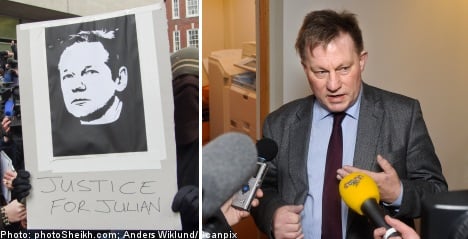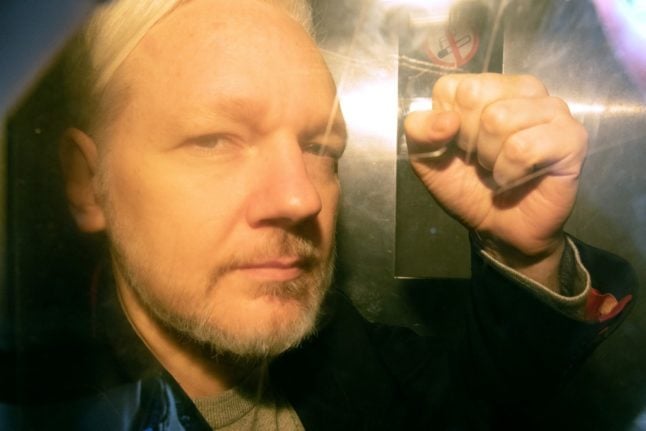“There is absolutely no link between what those two women have been through and WikiLeaks, the CIA, or the American administration,” Claes Borgström said.
The case “has nothing to do with WikiLeaks. I would like Julian Assange to come forward and say that himself. It would be a way of getting rid of all these rumours,” Borgström told reporters in Stockholm.
Borgström criticised the 39-year-old Australian for “not only hinting, but saying that this case is a conspiracy.”
“He knows this had nothing to do with WikiLeaks,” the lawyer stressed.
Assange, whose website is currently publishing thousands of confidential US diplomatic cables, was denied bail and remanded in custody in Britain Tuesday following his arrest under a warrant issued by Swedish authorities.
The British court, which denied him bail, heard Assange is accused of unlawfully coercing and sexually molesting a woman on August 14th and deliberately molesting her on August 18th.
A fourth allegation claims Assange had sex with a second woman on August 17th while she was asleep at her Stockholm home and without using a condom.
During an interrogation with police in Stockholm in late August, the transcript of which was reviewed by the Expressen newspaper, Assange admitted to police that one of the women behind the rape allegations had rejected his overtures to have sex.
“Yes, sometimes, but not in a way which was meaningful. No, not something which would be out of the ordinary,” Assange told police when asked if the woman had rejected his sexual advances.
At the start of the interrogation, Assange was informed that he was suspected for molesting a woman in her apartment by having unprotected sex with her.
According to Expressen’s sources, the woman accused the WikiLeaks founder of consciously puncturing a condom and then having sex with her, something Assange flatly denied in the interrogation.
Assange was reluctant to leave his version of events, fearing it would be leaked to the press, but was eventually convinced by his attorney at the time, Leif Silbersky, to provide details to the police.
He admitted that he had sex “several times” with the woman during the night between August 13th and 14th, but claimed he used a condom.
However, some details of the interrogation remain confidential, but according to Expressen, the questions posed by police suggest that the woman saw something that made her believe that Assange may have nevertheless had unprotected sex with her.
Assange admitted that the woman had asked him about the incident.
“And we didn’t discuss it further at all, not at all,” Assange said.
Assange has nevertheless consistently denied the rape allegations, which his London-based lawyer Mark Stephens told journalists Tuesday were “politically motivated.” He has also said the claims were part of a “smear campaign” to discredit his website.
Borgström said the elusive WikiLeaks publisher’s arrest was “a positive development” for his clients.
“They are a little relieved that he is under arrest in England, but at the same time, it’s a very frustrating situation, they have to wait much longer,” he said.
The lawyer described his clients as “two ordinary, young Swedish women” who were interested in WikiLeaks’ work and for that reason went to listen to Assange speak in Stockholm in August.
“They are very credible, they have given very detailed stories about what they have been through,” Borgström said.
“This is like any other investigation. There is no difference because it’s Assange. It’s up to the prosecutor to decide which information would be released to the accused,” he said.
The two women, he said, got in touch with each other after their contacts with Assange, and decided together to go to the police.
“They informed the police of what had happened, asked for advice,” he said, adding that at the time the two women were afraid they could have contacted HIV.
Bergström said the rape charge against Assange — which was not an aggravated rape charge — could land the WikiLeaks boss in jail for four years (an aggravated rape charge in Sweden comes with a longer sentence), sexual molestation could lead to fines and up to two years in jail, and a coercion charge could also lead to two years in jails and fines.
“That is what the charges look like today. They can change as the investigation goes on,” he said.
“He says he is motivated by exposing the truth,” the women’s lawyer said of
Assange.
“I think he should bring forth those principles in this case,” he added.



 Please whitelist us to continue reading.
Please whitelist us to continue reading.
Member comments